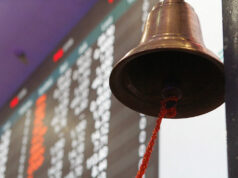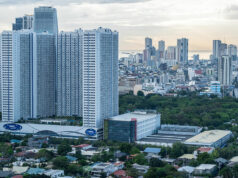Philippines ‘more attractive’ to FDI — US report
By Ian Nicolas P. Cigaral
Reporter
THE PHILIPPINES has become “more attractive” to foreign direct investments (FDI), the US State Department said in a June 29 report, but nagging constraints like limits to foreign ownership, poor infrastructure, corruption and red tape must be addressed to improve competitiveness and ease the conduct of business.
Prepared by more than 170 US diplomatic posts around the world, the Investment Climate Statements for 2017 report gives an assessment of the business climate in foreign economies, according to the department’s official blog site.
“The Philippines is becoming a more attractive destination for foreign direct investment,” read the report, which comes after the World Investment Report 2017 — published on June 8 by the United Nations Conference on Trade and Development — in
which “[t]op executives” counted the Philippines “among the most promising host countries” for FDI.
“The country’s middle class is growing and Filipinos quickly spend disposable income in a fairly stable political environment,” the State Department said, noting such spending helped “gross domestic product soar to an average growth of 6.1% over the last six years.”
The report noted further the Philippines has retained investment-grade credit ratings it first bagged in 2013, showing the country “has improved its overall investment climate” particularly “due to… robust economic performance, continued fiscal and debt consolidation and improved governance.”
“[N]oteworthy advantages” of doing business here include the presence of economic zones in which investment rules and conditions are fairly “clear” and “predictable”; an English-proficient, “relatively low-cost” and “highly motivated” work force and a “stable” banking system, the report read.
Philippine FDI net inflows grew by 40.7% year on year to a record $7.933 billion in 2016, outstripping Singapore’s and Malaysia’s 20.8% and 14.7% annual increases, respectively, as well as Indonesia’s and Thailand’s respective drops of 81% and 63.5%, according to data of the Bangko Sentral ng Pilipinas (BSP).
But in nominal terms, Philippine net FDI inflows paled in comparison to Singapore’s $61.632 billion and Malaysia’s $12.571 billion, although they were more than double Indonesia’s $3.762 billion and Thailand’s $3.286 billion for the same year.
Philippine FDI net inflows amounted to $1.56 billion as of end-March, growing 16.6% from the $1.337 billion recorded in 2016’s first quarter that itself was up 52.1%.
The central bank projects FDI net inflows to hit $8 billion this year, slightly more than 2016’s record $7.93 billion.
“Still, improvement is needed,” the State Department said in its report.
“The Philippines lags behind most of the 10 Association of Southeast Asian Nations in attracting FDI.”
It cited seven key disincentives, namely:
• foreign ownership limitations in many industries and sectors — as reflected in the Constitution and the foreign investment negative list (FINL) — which the report described as “a significant constraint”;
• poor infrastructure, including high power costs and slow broadband connections;
• inconsistency of regulations;
• corruption in the bureaucracy;
• a complex, slow and “sometimes corrupt” judicial system that thwarts “the timely and fair resolution of commercial disputes” ;
• slow, cumbersome business registration system;
• as well as traffic and port congestion that increase the cost of doing business.
LONG-STANDING COMPLAINT
The 10th two-year FINL issued in 2015 had retained virtually unchanged the preceding roster of domestic activities and sectors restricted to foreign participation, prompting foreign business leaders then to press the 16th Congress “to pass several non-controversial bills… that will make the next FINL less negative.”
The administration of former president Benigno S. C. Aquino III, however, was lukewarm to any move to amend the Constitution in order to lift restrictions to foreign ownership of land and in various sectors, as well as on the practice of certain professions.
President Rodrigo R. Duterte, who took over from Mr. Aquino at noon of June 30 last year, has repeatedly voiced support for lifting such restrictions.
The FINL is up for updating this year.
The same report also noted that American businessmen have described the Philippine government’s enforcement of regulations as “weak, inconsistent and unpredictable.”
“Many US investors describe business registration, customs, immigration and visa procedures as burdensome and frustrating,” the report read.
The problem, it added, can be traced partly to the fact that “regulatory agencies are generally not statutorily independent, but are attached to Cabinet departments or the Office of the President and, therefore, subject to political pressure.”
COURTS’ FAIRNESS QUESTIONED
The report also cited “inefficiency and uncertainty” in the court system as “a significant disincentive to investment.”
“Many investors decline to file dispute cases in court because of slow and complex litigation processes and corruption among some personnel,” it read.
“The courts are not considered impartial or fair,” it added, noting further that the judiciary was “inexperienced” in dealing with issues of technology, science and intellectual property rights.
The report also said that “investment disputes can take years to resolve due to systemic” issues like lack of resources, understaffing and corruption that “make the already complex court processes protracted and expensive,” even as moves like alternative dispute resolution have been taken in an attempt to decongest clogged dockets.
Also, while the government protects property rights, “implementation of these laws is weak and fragmented,” with registration processes of the Justice department’s Land Registration Authority and its Register of Deeds said to be “tedious and costly.”
“Multiple agencies are involved in property administration which results in overlapping procedures for land valuation and titling…,” the report read.
“Record management is weak due to lack of funds and trained personnel… corruption is… prevalent among land administration personnel and the court system is slow to resolve land disputes,” it added, noting that the Philippines placed 112th out of 190 economies in terms of ease of property registration in the World Bank’s 2017 Ease of Doing Business report.
It also noted that while the Philippines is not on the US Trade Representative’s Special 301 Watch List nor is it mentioned in the 2016 Notorious Markets Report, American investors have complained that even as “the country has a solid intellectual property rights (IPR) regime in place… implementation and enforcement are inconsistent.”
“US rights holders continue to report concerns about the availability of counterfeit items such as software, medicines and clothing, as well as judicial inexperience in IPR enforcement,” the report said.
“The Philippines generally has strong patent and trademark laws,” it noted, but added that “enforcement actions… are often not followed by successful prosecution” since “IP infringement is not considered a major crime in the Philippines and takes a lower priority in court proceedings.”



